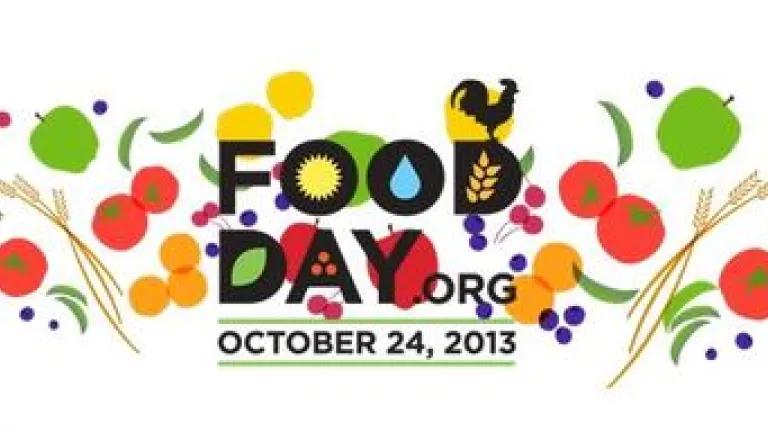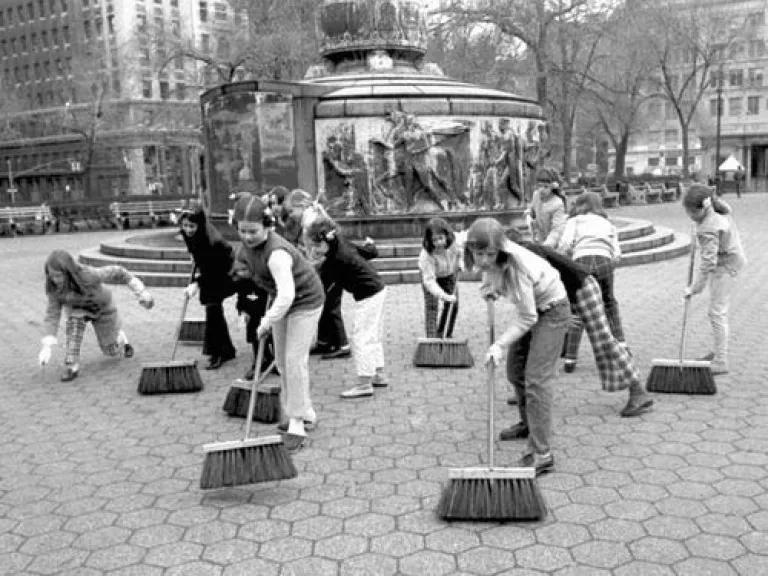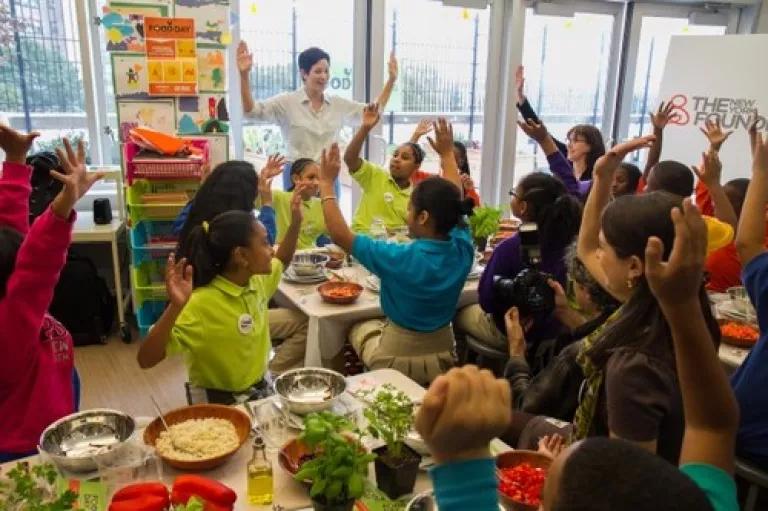
It’s a pretty familiar story—on April 22, 1970, 20 million Americans participated in the first Earth Day, which marks the birth of the modern environmental movement. That same year, Congress authorized the creation of the Environmental Protection Agency, and many of our major environmental statutes followed shortly.

Kids clean up Union Square during the first Earth Day, 1970.
In a less well-known story, in the years leading up to Earth Day, a number of young lawyers and law students started looking for a way to use law to protect the environment.
In the first days of 1970, some of these people, including a group of Yale Law students and a former Assistant U.S. Attorney named John Adams, started NRDC. Without the Clean Air Act and Clean Water Act to enforce, there wasn’t a developed field of environmental law. But this didn’t stop these young attorneys and in its early years, NRDC helped write and then enforce the laws and regulations that make up the foundation of modern environmental law.
So why am I telling you about Earth Day and the beginnings of NRDC on National Food Day? Because I think there are some promising parallels in food.
Much like the environmental movement in the early 1970s, we are developing a public consciousness around food that is leading to a new era of policy reforms. This is third annual Food Day and we may not be closing down Fifth Avenue like people did in 1970, but the political power of the food movement is growing and new food laws are being drafted.
It’s hard to say exactly what is causing the shift. Is it a breaking point caused by food that is making us sick and devastating our environment? Are the obesity epidemic and antibiotic-resistant salmonella our version of the Cayuga River Fire?
Or is it the way good food and sustainable farms can give us hope and inspire us? NRDC just hosted a panel at Power Shift on Food and Local Communities that really showcased how food has the opportunity to move us forward on so many things—healthier communities, climate mitigation and resilience, and green economic development.
Whatever the reason, people are coming together around food and on this national Food Day, we celebrate of healthy, affordable, and sustainably produced food and a grassroots campaign for better food policies.

New York City schoolchildren cook together for Food Day 2012.
And just like in the late 1960s and early 70s, young lawyers and law students are eager to make a difference using a new field of law. However, this time it’s food law! Law schools—including Harvard, Vermont, and UCLA—have all formed food law clinics or centers.
Other schools are holding gatherings or symposiums on the subject. In fact, NRDC New York Director Mark Izeman just recently moderated an event at NYU Law on Food Systems and Local Governance. And next week, I’ll be attending the University of Wisconsin Law Review Symposium on Safety and Sustainability in the Era of Food Systems.
Already, a new body of law is being created. This time it isn’t in Washington but in statehouses, city halls, and local communities across the country.
I’ve blogged about some of the efforts in New York City and State, including new legislation to find out where agencies are getting their food. The Harvard Food Law Clinic has provided legal trainings to local communities throughout the Appalachian region. Last month, California Governor Brown signed into law a bill encouraging urban agriculture—a bill that originated with the research of a then third year Stanford Law student.
Together, the emerging public consensus around food and a growing number of new food law attorneys have the power to make real change. And no doubt, we’ll see a growing body of food laws and policies around the country in the coming years.
NRDC is working on just that here in New York.

